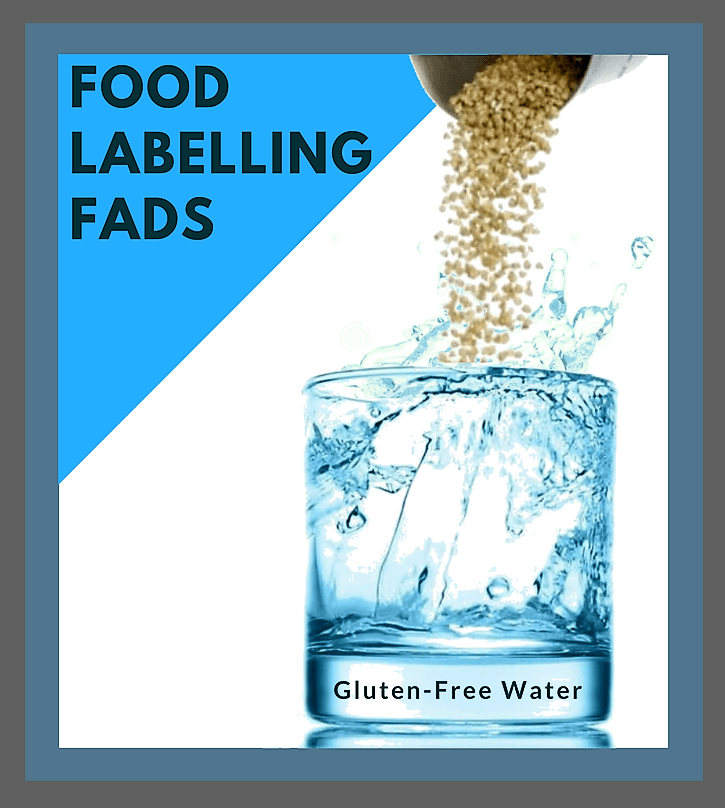Just how free is gluten free?
Food fads come and go, as do dieting fads, but you might be less aware of food labelling fads. Food and beverage companies know that consumers have limited awareness about how products are made and use this to their marketing advantage. A few examples of this have been organic maple syrup, verified non-GMO tomatoes and many gluten-free products. While I was aware of the growing trend of including gluten-free labels on food products, it wasn’t until I was made aware of gluten-free water that I began to realize just how badly food and beverage companies were scamming consumers. This quote from the Clara Gluten Free Water Company shows how little respect they have for consumers, “Clara is the world’s only water company focused on providing an elevated, gluten-free, water drinking experience…” I fully admit that I’m not a food scientist, but I am baffled on how water somehow contains wheat protein!!
 By Law, What’s Allowed?
By Law, What’s Allowed?
Health Canada regulates gluten labelling and in Canada. Products can be sold as gluten-free if they have less than 20 parts per million of gluten. Gluten levels of lower than 20 ppm are deemed to not pose a health risk to consumers with celiac disease.
Gluten can only come from the following crops: barley, oats, rye, triticale, and wheat (including kamut or spelt). Health Canada’s regulations are very strict about gluten-free labels for products made from these crops. However, Health Canada says nothing about the fraudulent use of gluten-free labels. Our food safety regulations are designed to ensure that consumers that have celiac disease are able to buy food products that are free of gluten, therefore safe for them to eat.
The Grey Area of Food Labels
Canadian regulations lack teeth regarding the mislabelling of gluten-free products. Food products that do not, or never have, contained cereal grains as an ingredient can’t be labelled as gluten-free. If grain was never an ingredient to start with, then the product can’t suddenly be labelled as gluten-free by the food company. The temptation for food companies, not to mention all kinds of other consumer product companies, to slap on a gluten-free label and increase the price of the product is incredibly tempting and unfortunately far too commonplace. The Clara Gluten Free Water Company is the poster child for this problem.
Consumer protection from the predatory marketing of gluten-free products would be increased if Health Canada and the Canadian Food Inspection Agency had a clear mandate to prevent misleading food labels. Consumers are bombarded by hundreds of product advertising claims each and every day. However, with non-food products, it is possible to evaluate the safety of the product prior to purchase, such as an automobile or power tools. When it comes to food, we rely on the validity of the product’s label as grocery stores tend to frown on shoppers opening up products and eating them directly off the shelves. They’re funny that way!
To better protect consumers from mislabelling claims, accurate labels are essential. When bottled water companies proudly claim to provide gluten-free products, it’s a sign truth in advertising is more important than ever.


